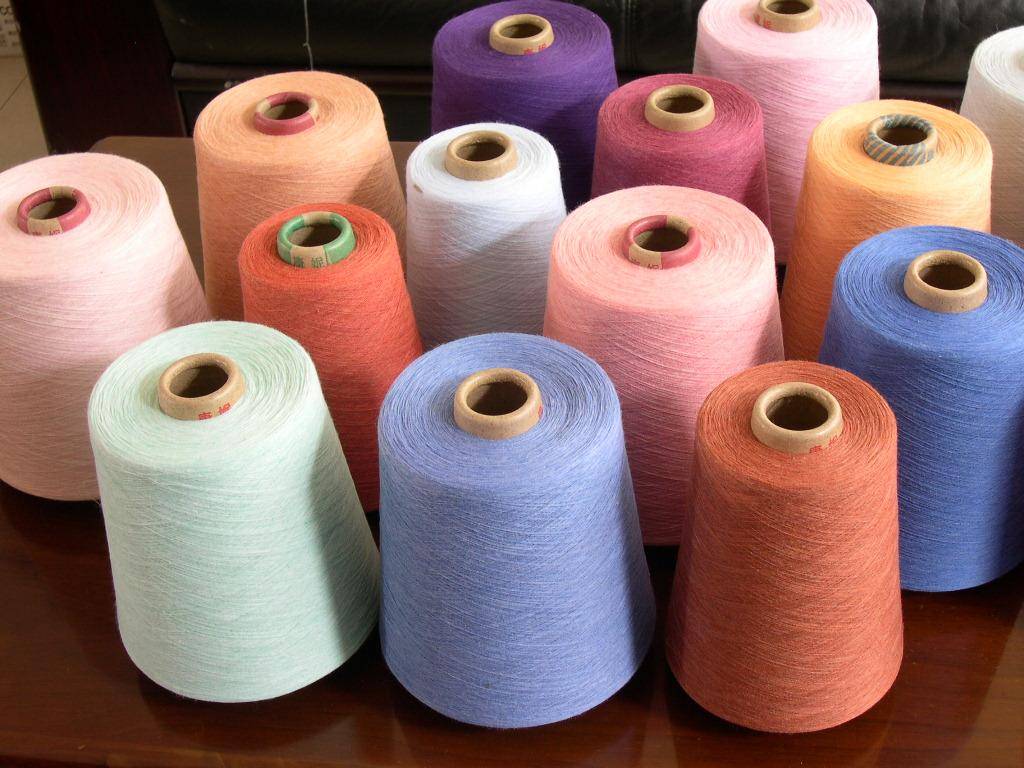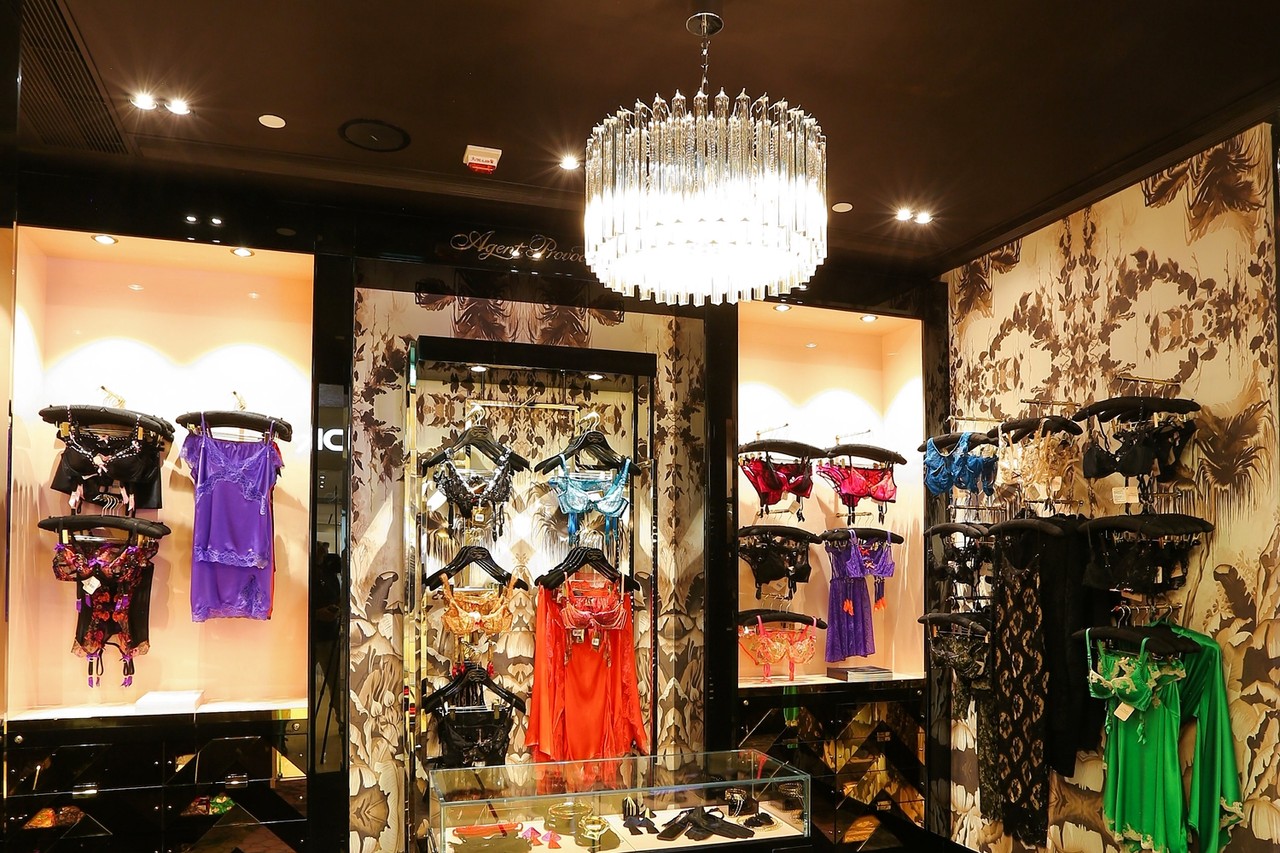FW
Dutch capital Amsterdam will host the next edition of Kingpins Show on May 7 and 8, 2014. Focusing exclusively on denim, the show brings together some of the world’s best mills, laundries, trim, and technology suppliers to provide one stop shopping for denim brands, retailers, and garment makers.
Under the banner ‘of Comfort at any Degree’, the Invista stand will feature a variety of innovations that address consumer needs for comfortable garments that move with them, help keep them warm, cool, or protected. From its Lycra DualFX technology for super stretch garments that keep their shape, to thermal concepts such as its Coolmax All Season and Thermolite technologies, and durable options such as Tough Max Lycra and Cordura Denim fabrics, visitors of the Invista stand will find solutions for many common consumer issues.
Underscoring its commitment to develop consumer relevant market concepts, Invista will host a seminar on May 7 to present the results of a recently completed global denim study. The presentation will cover specific insights about what consumers are looking for in their jeans as well as some of the larger megatrends that are influencing their behavior.
In addition Invista will showcase a video of the denim desires of consumers in Amsterdam. The Dutch own more jeans per capita than people in any other country.
www.invista.com/en/index.html
www.kingpinsshow.com/
Italian manufacturer Carvico has recently launched its innovative performance swim fabric, Vita. The new material is an evolution of Carvico’s bestselling material Malaga, and is made of 22 per cent Xtra Life Lycra, Invista’s premium swimwear fiber, and 78 per cent recycled polyamide.
Comparative tests were carried out both in laboratories -- for testing the fabric’s resistance to sun creams and oils -- and outside laboratories - in real-life usage, simulating 8.800 hours of swimming in the pool. Two groups of young swimmers wore swimsuits: one wore swimsuits created from Vita fabric, made using Xtra Life Lycra fiber, and a second group wore identical swimsuits made with a similar fabric containing chlorine-resistant yarn from the competitor.
The results showed the superiority of Vita’s resistance to degradation from creams and oils, an excellent shape retention and fit, four times higher compression capacity, a double resistance to fiber breakage in comparison to the competitor’s fabric with other chlorine-resistant elastane. Moreover, Vita fabric is characterized by 20 per cent thinner material thickness and smoother and softer hand characteristics. Carvico is a manufacturer of stretch warp knit fabrics used for swimwear, sportswear, underwear and outerwear garments.
The International Wool Textile Organisation (IWTO) has re-launched the Green Wool Facts brochure. The second edition of the Green Wool Facts publication highlights recent work on wool’s Life Cycle Assessment (LCA) and its impact on the environment. The 18-page booklet provides case studies on the topic and also explains IWTO’s push to prove the environmental credentials of wool. It points out that 50 per cent of the weight of wool is comprised of pure organic carbon; in comparison to cotton and viscose, which contain 40 per cent and 24 per cent respectively. Therefore, the claim that wool is a naturally green product. In addition, IWTO says that wool is readily biodegradable, unlike most synthetic fibers, and wool clothing and processing wastes are routinely recycled into other durable forms of textile (woolen-spun knitwear, insulation, geo textiles).
The relaunch, IWTO’s 83rd Congress is currently in progress in Cape Town, and gives the organisation an opportunity to highlight the importance of the wool sector and its relationship with the environment.
IWTO is an international and independent organisation, which focuses on world wool trade regulations. Its annual congress gives an opportunity for leaders in the trade to meet and help build a professional and sustainable industry, and for people to gain a better understanding of the South African sector.
www.iwto.org/
Shri Govindaraja Textiles will start a yarn manufacturing operation in North Carolina with an investment of $40 million over the next three years. The unit will create 84 jobs. Located in a 1,80,000 sq. ft. building, it will buy North Carolina cotton and produce combed yarn.
Incorporated in 1999, Shri Govindaraja Textiles is part of the Shri Govindaraja Group, which is a part of the larger Sri Jayavilas group. It is one of the largest spinning groups in India, with 1.1 million spindles and 30,000 employees. The main activity is manufacturing of cotton yarn, polyester yarn, polyester cotton and polyester viscose blended yarn. With 504 rotors, it has grown to four lakh spindles and 8,000 rotors. It produces 100 per cent grey cotton ring spun and open end yarns for weaving and knitting.
The company specializes in 100 per cent grey cotton yarn ranging from 2s to 160s counts with over 60 per cent of yarn revenues derived from the fine/superfine count (60s and above counts) category. The company also has a good presence in the value-added domain through products such as gassed, high-twisted and compact spun yarn.
www.sgrtex.com/Group_History.html
Zumba, the largest dance fitness company in the world, is implementing Lectra Fashion PLM to manage its active wear line. Lectra Fashion PLM will be used for Zumba’s apparel line starting with design, incorporating product development and sourcing. This will allow for the brand to better manage efficiencies with factories to understand sample development process, fabrics and trims, lab dips and more. And Lectra, with a vast network of partners within the supply chain, can help Zumba achieve its business objectives through offering process expertise and advanced technology.
Lectra is the world leader in integrated technology solutions dedicated to industries using soft materials—fabrics, leather, technical textiles and composite materials. It develops advanced specialized software and cutting systems.
Zumba was founded in 2001. Known as the ultimate fitness-party, Zumba classes blend upbeat world rhythms with easy-to-follow choreography, for an effective, total-body workout. The lifestyle brand designs, develops and sells apparel from active wear essentials to fashion-infused designs, offering a range of pieces that transition effortlessly from the studio to the streets. Zumba aims to grow a successful apparel brand that can transcend any space, whether fitness or every day life.
www.lectra.com/, www.zumba.com/
PPSS Group, a UK-based company, produces high performance body armor and other types of personal protective equipment and clothing. It supplies to security agencies and clients at risk around the globe. It makes bullet proof vests, stab vests and cut resistant clothing. Originally founded in 2006, the company changed its structure and name in 2009.
Cut-Tex PRO is a ground breaking combination of highly technical fibers, woven by special high density knitting machines, resulting in a truly outstanding cut and slash resistant fabric. It has cleared stringent European and international standards for cut, tear and abrasion resistance. Additional test reports confirm the durability of this fabric clearly outperforms other fabrics such as Kevlar.
Lining specific areas of a uniform with Cut-Tex PRO means effectively shielding the most vulnerable areas and key arteries, which will help reduce the risk of accidental cut injuries, malicious workplace violence like slash injuries and even death. The cut resistant fabric is now being used by uniform manufacturers in several countries. Last year, PPSS launched what it claims to be the world’s toughest forced entry mitten, featuring a very high level of flame and heat protection.
PPSS is dedicated to the design, development and manufacture of protective equipment – offering protection from firearms, edged weapons, hypodermic needles, blunt trauma and human bites.
www.ppss-group.com/
The second edition of Texprocess Americas, the North American trade show featuring equipment and technology for the development, sourcing and production of sewn products, will commence from May 13-15, 2014 at the Georgia World Congress Center in Atlanta, GA. Owned by Messe Frankfurt and co-produced with SPESA, the show will be co-located with Techtextil North America, the international trade fair for technical textiles and nonwovens.
For the first time in 2014, the Technology Solutions Pavilion will include both exhibits highlighting technologies such as 2D/3D design, PLM, ERP, costing, supply chain management and shop floor control and a Technology Solutions Theater, with a continuously running series of vendor-sponsored educational presentations.
[TC]2 will host the Cool Zone on the show floor to showcase current and future leading-edge technologies. Included will be [TC]2's 3D body scanning; AM4U's purchase activated manufacturing; Baxter the robot; Yunique Solutions' (Gerber Technology) mobile- and cloud-based product development; Henderson Sewing's robotic sewer; iStyling's virtual dressing and style/fit recommendations and more. (iStyling is a retail solution that uses [TC]2's 3D body scanning and avatar creation technology to provide personalized styling, color and fashion recommendations. Made-to-measure and best fit recommendations are provided to address the needs of brands and specialty stores.)
About 170 equipment, solution and service providers and organizations are expected to participate at Texprocess, including Lectra, Infor, Gerber Technology and Yunique Solutions, Simparel, Human Solutions North America, FDM4 International, Computer Generated Solutions, OptiTex USA, Alvanon and more.
Texprocess.messefrankfurt.com
Honeywell Resins and Chemicals plans to expand its production facility in Chesterfield, Virginia to cater to the rising demand for high-grade nylon polymers for packaging film and other applications. The new production line will be able to produce both nylon 6 and copolymer nylon 6/6.6 resins, with flexibility to produce either to match customer demand. The new line will have a capacity of 40,000 metric tonne per year and is expected to start production in the fourth quarter of 2015, expanding capacity at the facility to 200,000 metric tonnes per year.
Honeywell’s resins, sold under the Aegis brand name, are used in various applications such as fibers and filaments for carpeting, fabrics, nets and cords; engineered plastic components for automotive, consumer and industrial applications; and films for food and protective packaging.
Honeywell Resins and Chemicals is also a major producer and global supplier of caprolactam, a merchant-grade, nylon 6 intermediate used in a range of applications, including carpet, textiles, engineering plastics, films and industrial filament. The Honeywell plant in Hopewell, Virginia, with a capacity of 350,000 metric tons of caprolactam per year, is one of the largest single-site caprolactam production facilities in the world. Honeywell caprolactam is sold globally and shipped either in molten or flake form to a variety of downstream customers.
In addition to caprolactam and resins, Honeywell Resins and Chemicals sells chemical intermediates, including phenol, cyclohexanone and acetone. It is also a major producer of ammonium sulfate fertiliser, a co-product of caprolactam production, which is sold under the Sulf-N brand.
www.honeywell.com
The latest figures from the Department of Commerce's Office of Textiles and Apparel (OTEXA) show the volume of US apparel imports in February fell 4.2 per cent to 1.98 billion sq. mt. equivalents (SME). This is lower than both the 2.07 billion SME booked last year and the 2.14 billion SME in January. The numbers also contrast starkly with the 0.4 per cent rise in imports of all goods and services into the US during the month.
Of the top 10 US apparel supply countries, five saw their imports fall. By far the biggest decline was booked by the largest supplier, China, whose shipments were down 12 per cent to 754 million SME during the month. Bangladesh, at number three, witnessed a drop of 10.2 per cent to 136 million SME, and Indonesia (number four) slipped by 4.6 per cent to 109 million SME.
While Vietnam, which ranked as the fastest-growing apparel supplier to the US last year, continued to gain as both producers and buyers diversify their supply chains. Its February imports were up 6.5 per cent year-on-year to 225 million SME, with the positive turnaround in apparel business owing to the benefits of the proposed Trans-Pacific Partnership (TPP) trade treaty with countries including Canada and the US
Other countries like Honduras, Cambodia, Mexico, and India gained from a rise in shipments to the US. However, exports from El Salvador and Pakistan witnessed a sharp decline. Among the most important regional supply groups, ASEAN rose just 0.1 per cent while South Asia fell 1.6 per cent.
Otexa.ita.doc.gov
 As per International Textile Manufacturers Federation (ITMF) analysis global yarn production dropped in Q4 of 2013 in comparison to the previous quarter as a result of lower output in Asia, South and North America while production in Europe was up. Year-on-year global yarn production was up in all regions except South America. Worldwide yarn stocks rose due to higher inventories in Europe and Asia and despite lower ones in South America. On an annual basis global yarn stocks were up in all regions, except in South America. Yarn orders in Europe increased slightly but dropped in Brazil in Q4/2013. Compared to last year’s quarter yarn orders were lower both in Brazil and Europe.
As per International Textile Manufacturers Federation (ITMF) analysis global yarn production dropped in Q4 of 2013 in comparison to the previous quarter as a result of lower output in Asia, South and North America while production in Europe was up. Year-on-year global yarn production was up in all regions except South America. Worldwide yarn stocks rose due to higher inventories in Europe and Asia and despite lower ones in South America. On an annual basis global yarn stocks were up in all regions, except in South America. Yarn orders in Europe increased slightly but dropped in Brazil in Q4/2013. Compared to last year’s quarter yarn orders were lower both in Brazil and Europe.
Estimates for yarn production for Q1/2014 are positive in Asia, Europe, North and South America. Estimates for fabric production for Q1/2014 are positive in Asia, Europe and South America and negative in North America. The outlook for yarn production for Q2/2014 is positive in Asia and unchanged in Europe and South America. The outlook for fabric production for Q2/2014 is positive in Asia and unchanged in Europe and South America.
In comparison to the previous quarter world yarn output dropped in Q4 of 2013 by -15.4 per cent due to lower output in Asia (-16.1 per cent), South America (-14.7 per  cent) as well as in North America (-6.7 per cent) and despite an increase in Europe (+4.6 per cent). In comparison to Q4/2012 global yarn production rose by +8.7 per cent as a result of higher production levels in Asia (+9.6 per cent), North America (+5.0 per cent), Europe (+0.7 per cent) irrespective of a decline in South America (-6.7 per cent).
cent) as well as in North America (-6.7 per cent) and despite an increase in Europe (+4.6 per cent). In comparison to Q4/2012 global yarn production rose by +8.7 per cent as a result of higher production levels in Asia (+9.6 per cent), North America (+5.0 per cent), Europe (+0.7 per cent) irrespective of a decline in South America (-6.7 per cent).
Compared with the previous quarter global fabric production rose in Q4/2013 by +4.3 per cent with Europe and Asia recording higher outputs of more than 6.4 per cent and 5.6 per cent, respectively, while South America’s production fell by -15.3 per cent. Year-on-year global fabric production was up as well (+3.5 per cent) with Asia recording a production jump of +5.4 per cent and Europe of +2.0 per cent, while South America recorded a slump of -19.8 per cent. Fabric stocks were slightly higher globally as a result of higher inventories in North and South America, while stocks were reduced in Europe and Asia. In comparison to last year’s quarter worldwide fabric stocks fell due to lower inventories in South and North America while stocks rose in Asia and Europe. Fabric orders in Brazil and Europe decreased, but on an annual basis fabric stocks were up both in Brazil and Europe.
Estimates for yarn production for the first quarter of 2014 are positive in Asia, Europe, North and South America. Estimates for fabric production for Q1 are positive in Asia, Europe and South America and negative in North America. The outlook for yarn production for Q2/2014 is positive in Asia and unchanged in Europe and South America. The outlook for fabric production for second quarter is positive in Asia and unchanged in Europe and South America.











